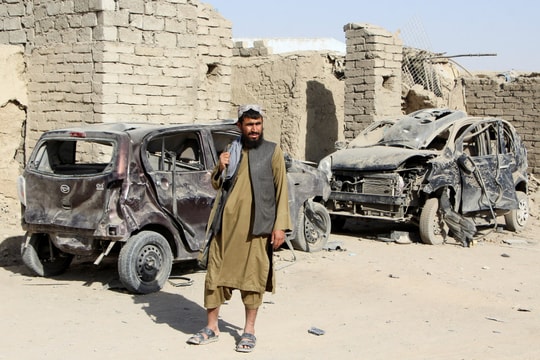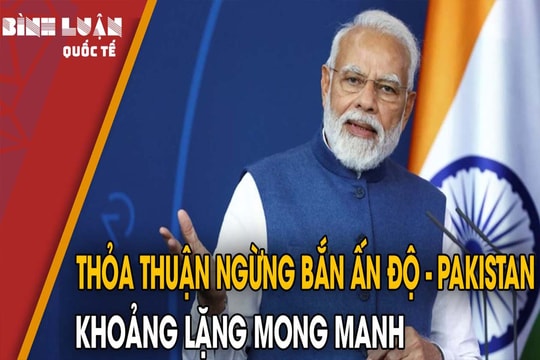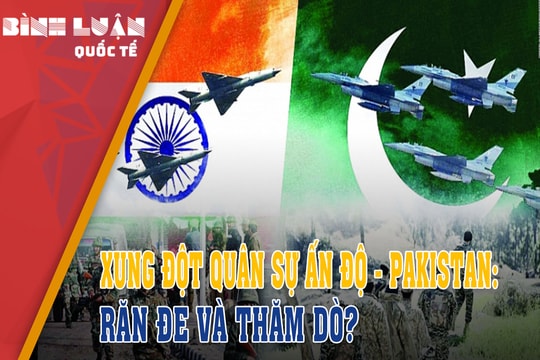Pervez Musharraf - from President to Treason Charge
(Baonghean) - The treason case against former Pakistani President and military leader General Pervez Musharraf has been stalled for so long that many believed there would never be a verdict. However, six years after the prosecution, a special court in Islamabad has finally delivered its verdict and sentenced former President Pervez Musharraf to death for treason.
Career ups and downs
Pervez Musharraf was born in New Delhi, India, in 1943, before the Indian subcontinent was divided into what is now India and Pakistan. Shortly after, his parents decided to leave New Delhi for Karachi, Pakistan, at the same time that millions of people were leaving northern India for Pakistan, the newly formed, predominantly Muslim nation. The son of a diplomat, Musharraf did not follow in his father's footsteps. He joined the Pakistani army in 1964 and fought in the 1965 and 1971 wars with India.
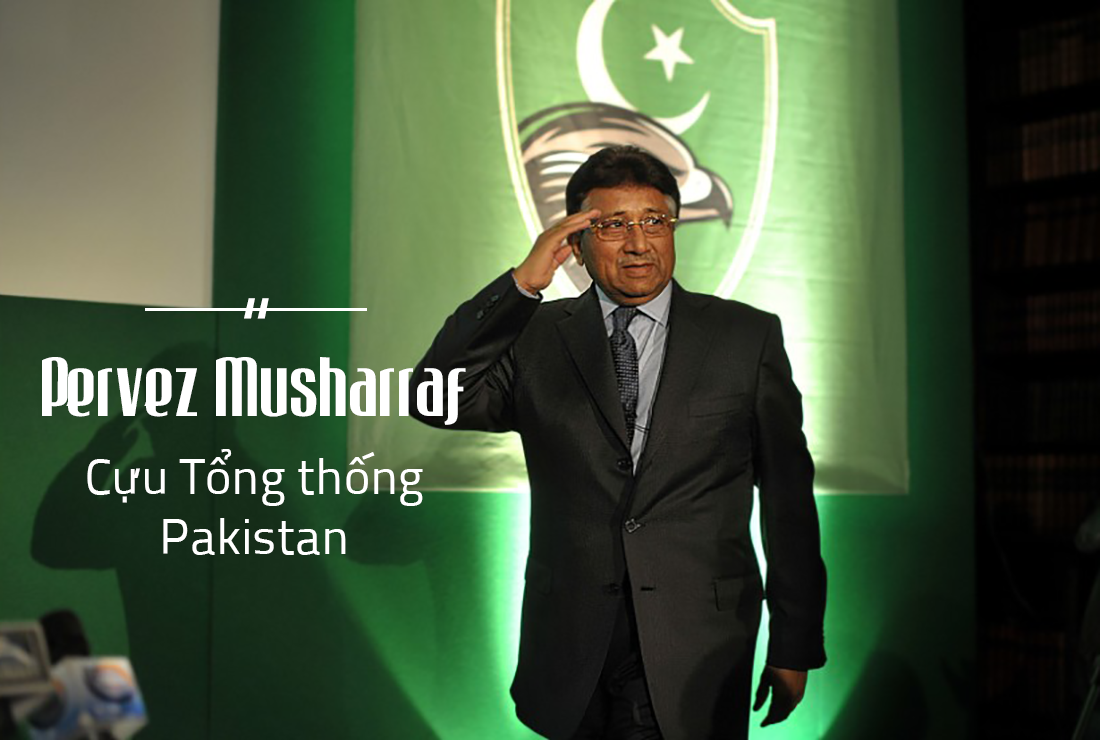 |
| Photo: CNN |
He rose quickly through the ranks and, in 1998, was appointed army chief under then-Prime Minister Nawaz Sharif. At the same time, Pakistan was put on the world nuclear map when Musharraf and Sharif conducted nuclear tests in May 1998. However, a year later, relations between the two leaders soured. Local media reported that Sharif tried to sack Musharraf while he was returning from an official visit to Sri Lanka.
And Musharraf's swift response then changed the course of Pakistani politics for years to come. He ordered the military to take control of state institutions and declared a state of emergency as "chief executive" of Pakistan as soon as he landed, a position he held until 2002 when a general election was held.
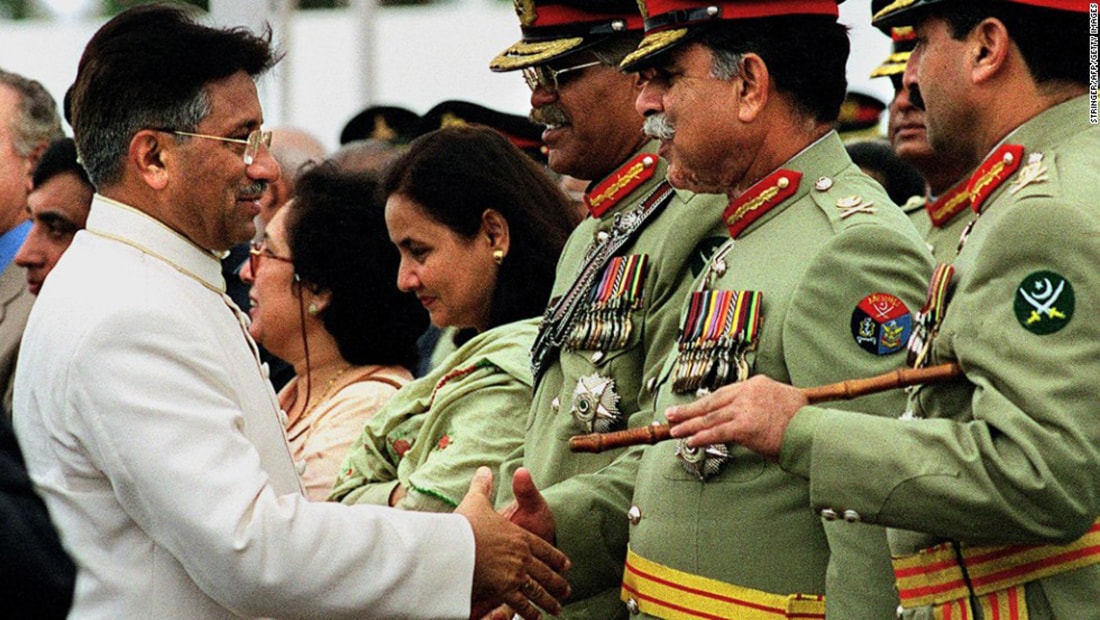 |
| Musharraf shakes hands with military officers in 2001. Photo: CNN |
When Mr Sharif was ousted in 1999, many Pakistanis celebrated the end of a government that was blamed for crippling the economy. But the removal of Prime Minister Nawaz Sharif was still seen as an “anti-democratic” act.
In 2002, Mr. Musharraf became president for a 5-year term after the election. At that time, Musharraf became a powerful name in the politics of this South Asian country. Initially, he concurrently held the position of Army Commander - the most powerful position in Pakistani politics, then he appointed a confidant to this position. His achievements as the country's leader were also recognized. Musharraf not only stabilized and grew the country's economy, but also won international praise in the fight against the Taliban and Al-Qaeda, becoming the right-hand man of the United States in the war on terrorism.
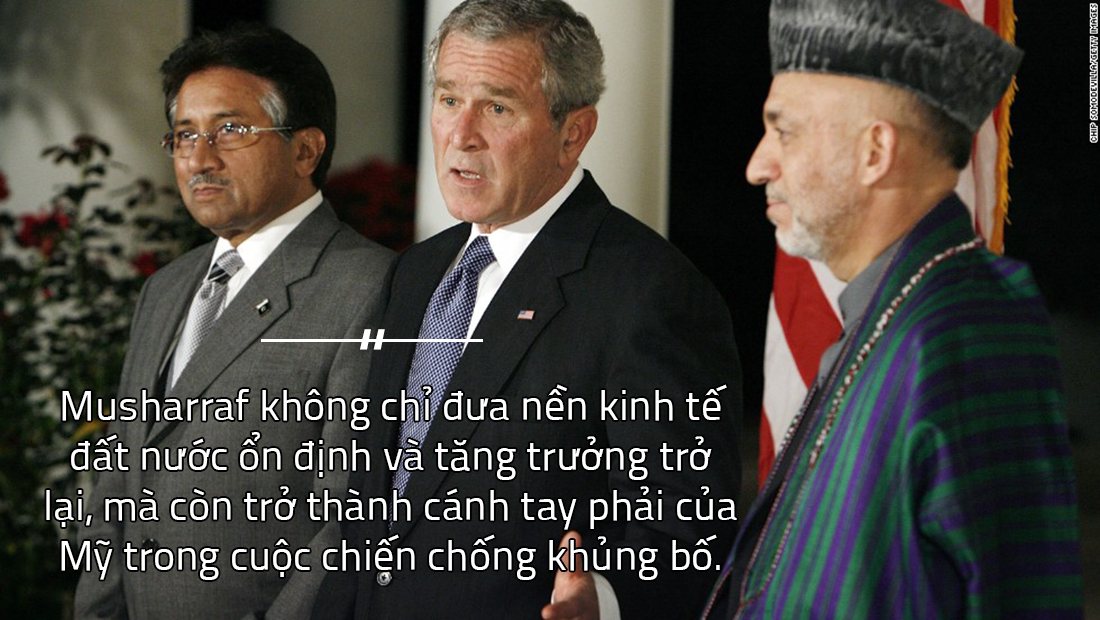 |
| Mr. Pervez Musharraf (left) stands next to US President George W. Bush and Afghan President Hamid Kazai at the Rose Garden, White House in 2006. Photo: CNN |
That said, Musharraf faced no serious challenge during his five-year term until he sacked the Chief Justice and many opposition leaders in March 2007, sparking nationwide protests and months of chaos. In response, Musharraf suspended the Constitution and imposed martial law, which led to his subsequent impeachment and treason charges. As a result, Musharraf and his party lost a free election in February 2008. In August of that year, he was forced to resign in the face of impeachment proceedings by the new ruling coalition. Musharraf went into exile and returned to his homeland in 2013 in the hope of regaining influence.
However, his return was not welcomed, even facing a series of criminal cases, the highest being treason. In 2013, Mr. Nawaz Sharif became Prime Minister of Pakistan and from here the process of prosecuting Mr. Musharraf for treason began.
With the verdict on December 17, Mr. Musharraf is the first former military leader in Pakistan's history to be sentenced to death for illegally seizing power.
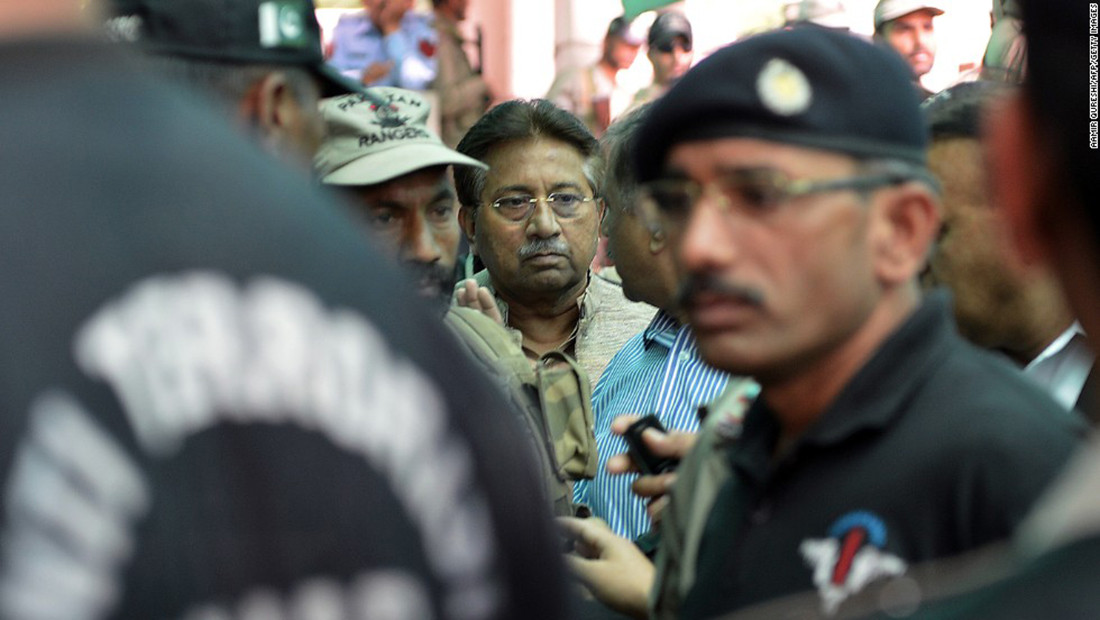 |
| Mr. Musharraf is escorted by soldiers when he is summoned to an anti-terrorism court in 2013. Photo: CNN |
Influence in Pakistan
Despite facing treason charges and a death sentence for an army general, Mr. Musharraf still seems to have an important position in society, especially with the Pakistani military. The military's press office asserted that Mr. Musharraf "will never be a traitor." On December 18, a series of protests took place across Pakistan to protest the death sentence for Mr. Pervez Musharraf.
In Lahore, Punjab University administrators, teachers and students held a large rally to express solidarity with the Pakistan Army. Participants carried banners honoring the sacrifices of the military. Musharraf's supporters believe that a soldier who served his country for 40 years cannot be a "traitor".
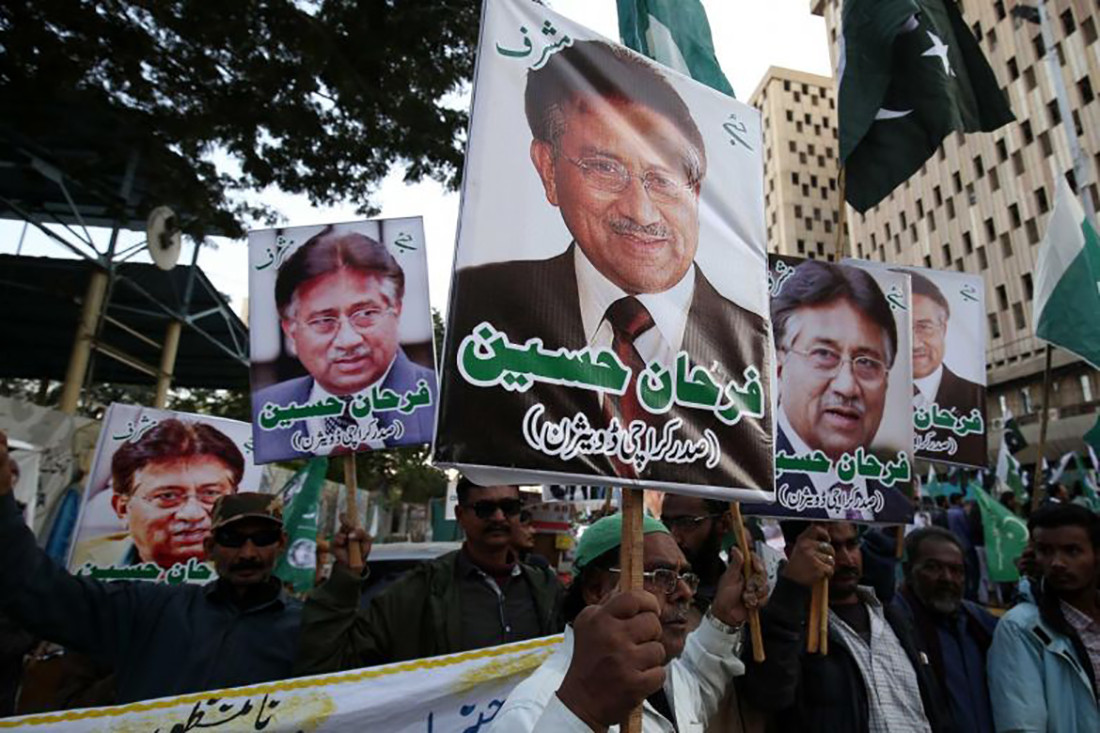 |
| Supporters of former President Pervez Musharraf protest against his death sentence on December 18, 2019. Photo: EPA-EFE |
In theory, the Supreme Court could consider whether a military general should be spared from a sentence. If some “loophole” exempts Musharraf, it would effectively be limiting its own powers—a move that could spark further protests. But if the court upholds the verdict, the military could very well take some coercive action against the judiciary in the future.
There is no denying that former President Musharraf has supporters in Pakistan, but many are also angry at what they see as his excessive “kowtowing” to the US in the war on terror. Musharraf once faced an ultimatum from Washington to “befriend us or fight us.” Ultimately, Pakistan under Musharraf chose to “befriend” the US, becoming Washington’s ally in the fight against the Taliban, al Qaeda and many other terrorist groups. However, this choice also made Pakistan a target for terrorist attacks over the years.
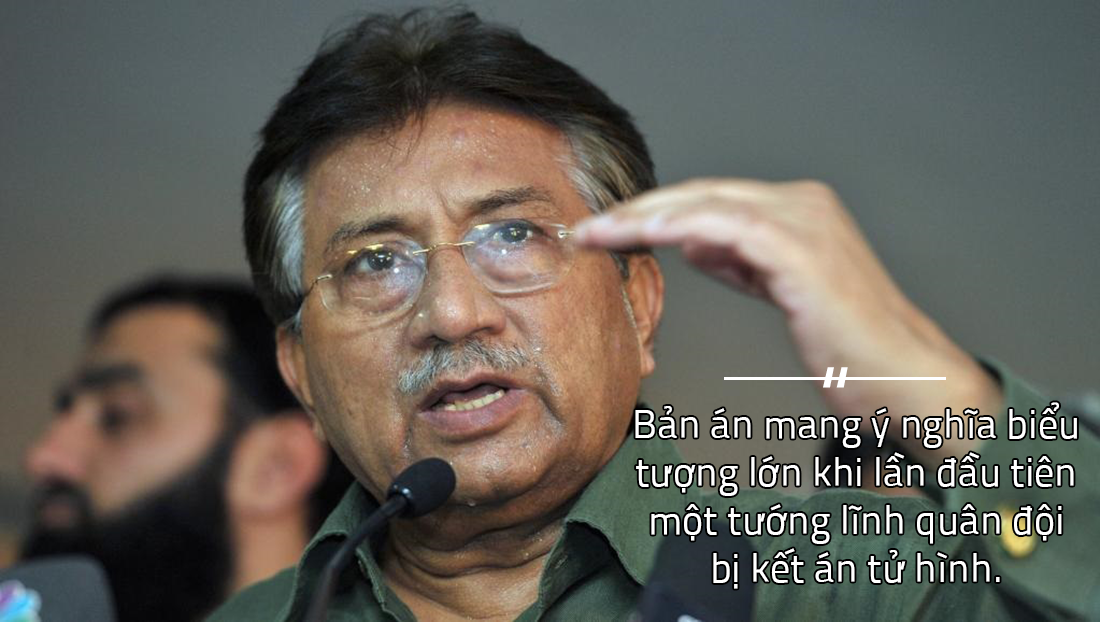 |
| Former Pakistani President Pervez Musharraf (Photo taken on March 23, 2013 in Dubai). Photo: Reuters |
Observers say the death sentence against the general is unlikely to be carried out because he is unlikely to return to Pakistan. However, the sentence has great symbolic significance as it is the first time an army general has been sentenced to death - something that has never happened in a country where the military holds so much power. Therefore, it is very possible that the sentence of the special court could spark a confrontation between the judiciary and the military in Pakistan.

